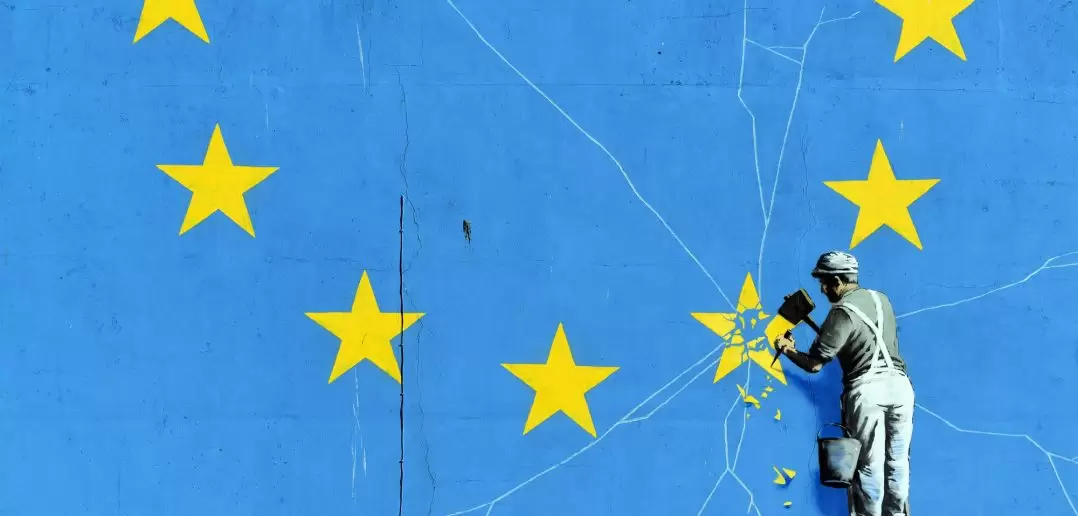
The Rising Cost of the Lack of Strategic Dialogue
by Ali Tuygan
In another ten days, it will be six months since the beginning of Russia’s invasion of Ukraine. The news of the war no longer makes the headlines. Because it only takes time for the most unexpected, for the worst to become the new normal, like in Syria, Libya, and Yemen.
Last week, the top news titles were about Chinese military drills around Taiwan, the search warrant executed by FBI agents at Mar-a-Lago, drought and forest fires in Europe, floods in Korea, a looming recession in Germany triggered by Russian cuts in natural gas supplies, and Salman Rushdie. Insofar as the war is concerned, international attention remained focused on preventing a nuclear disaster at Zaporizhzhia Nuclear Power Plant. And it seems that President Zelensky has no more foreign parliaments to address through video conferences.
In a EURACTIVE op-ed titled, “Historical challenges and false directions for Europe at the crossroads” Polish Prime Minister Mateusz Morawiecki, claimed that the equality of individual countries in the EU is of a declarative nature, and political practice has shown that the voice of Germany and France counts above all.[i] Thus, he said the EU member states are dealing with a formal democracy and a de facto oligarchy, where power is held by the strongest. In addition, the strong ones make mistakes and are incapable of accepting criticism from outside. On Germany’s relationship with Russia, he said:
“If all of Europe would follow Germany’s voice, not only Nord Stream 1 but also Nord Stream 2 would have been launched for many months. Europe’s dependence on Russian gas, which today serves Putin as a blackmail tool against the entire continent, would be almost irreversible.
“Finally: if all of Europe would send weapons to Ukraine on the same scale and at the same pace that Germany did – the war would have ended long ago. It would have ended with Russia’s absolute victory. And Europe would be on the eve of another war. Russia, encouraged by the weakness of its opponents, would move on.
“Let’s just say it: the European Union order does not protect us enough from external imperialism. It is actually quite the contrary: EU’s institution and actions, while not being free from the temptation to dominate the weaker, remain exposed to the infiltration of Russian imperialism.”
Mr. Morawiecki also said that Poland has no monopoly on the truth, but in relations with Russia, Poles are far more experienced than others. What he understandably refrained from saying is that the Poles are just as experienced in relations with Germany.
As for Western unity against China, this is what Ambassador Chas W. Freeman, Jr. (USFS, Ret.) said in a must-read speech he delivered at Brown University:
“China’s refusal to align itself against Russia has fed European views of China as an amoral global competitor that must be dealt with at arm’s length. But Europeans will not commit to join the United States in war with China if the Taiwan issue ignites such a war. Russia is quite enough for them. They can’t afford a military role in the Indo-Pacific even if their alienation from China is such that in any Sino-American war, they would support the United States with measures short of war. India might do the same. Australia and Japan can be expected to support the U.S. military even if they don’t themselves engage.” [ii]
And after referring to the “absence of mutually respectful dialogue” between China and the US, this is what he said about the war in Ukraine:
“The same sort of suspension of give-and-take in the face of Russian objections to NATO enlargement catalyzed the current war in Ukraine. There are many lessons to be drawn from the outbreak of that war. But perhaps the most important is that ignoring the strongly expressed core interests of other nuclear-armed great powers can lead to a conflagration.”
At present, according to the UN, at least twelve million people have fled their homes since Russia invaded Ukraine. More than five million have left for neighboring countries, while seven million are displaced inside Ukraine. Those living in the areas devastated by the war are suffering from a lack of power, water, and food shortages. And Europe is only months away from winter which will make their survival even more difficult.
Defining the conflict in terms of victory and defeat was wrong from day one as there could be no winners in this war. On the one hand, President Putin’s plan to conquer Ukraine through a blitzkrieg has failed. He would not be able to claim victory even if the “special military operation” to take over Donbas reached its extremely costly conclusion. Towards the end of April 2022, US Defense Secretary Lloyd Austin said that he wants to see Russia “weakened”. To a certain extent, this is now the case. On the other hand, President Zelensky’s declaration that the war must end with the liberation of Crimea is an illusion.
All this calls for a cessation of hostilities the first step towards which is the resumption of diplomatic dialogue between Moscow and Washington. After all, it is not only Russia and Ukraine but also the US and Russia at war.
Prime Minister Morawiecki said, “If we really want to talk about democratic values today, it’s time for a great reckoning of Europe’s conscience.”
And sometime in the future, when the conflict reaches the no peace no war stage, will come the West’s day of reckoning with the Ukraine tragedy. By all indications, it will be a day of acrimony.
—————————————————————————————————
[ii] https://chasfreeman.net/some-implications-of-the-sino-american-split/









